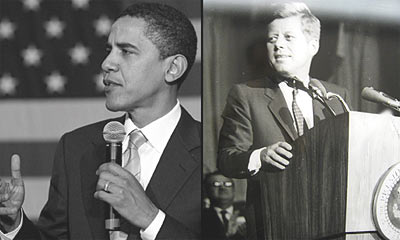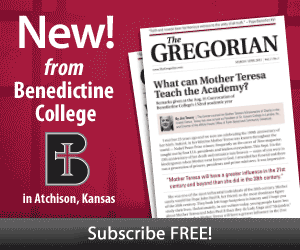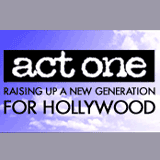Politics
JFK, Barak Obama and the role of religion in American political life

When Democratic presidential nominee Barak Obama spoke in mid-March about race, the speech was hailed as a watershed moment in American politics. Laudatory comparisons were made to John F. Kennedy’s speech to the Greater Houston Ministerial Association on September 12, 1960, where he addressed head on the question of whether a Catholic could be considered for the nation’s highest office.
Though his speech focused on the issue of race itself in American politics, what received less attention was Obama’s reflection and defense of traditional black churches in the life of the black community and America.
Obama was sorely pressed to condemn the incendiary comments of his pastor, Reverend Jeremiah Wright of Trinity United Church of Christ in Chicago who, among other things, appeared to have cheered the attack on the World Trade Center towers, portrayed white Americans as irredeemably racist, and saw the HIV epidemic as a white plot against black America.
Yet, while he did condemn Reverend Wright’s rhetoric, Obama refused to disassociate himself from his church or its pastor. He made abundantly clear the importance of his church to the person he was, and the importance of traditional black churches to the black community as a whole. (While still largely bemoaning “the old truism that the most segregated hour in American life occurs on Sunday morning.”)
One can argue the political strategies involved or whether Obama should have been far more forthright in condemning the Reverend Wright. Those are political judgments that belong to the Democratic voters in Pennsylvania and the concluding primaries.
But while Obama’s speech was compared to Kennedy’s speech to the ministerial association, he actually portrayed a much different perspective than the first Catholic president on the role of churches in American political life. And that received little comment from the chattering pundits on the Sunday morning news shows.
Kennedy’s speech is usually portrayed as a classic defense of a strict secular separation of personal religion from public life. Obama’s refusal to throw his pastor under the bus and disassociate himself from his church came closer to a defense of religion in the political arena than Kennedy would have thought possible. And probably would not have been possible by Kennedy because of the legacy of anti-Catholicism.
When Kennedy gave his speech in 1960 he faced a very real problem of a normative anti-Catholicism in American culture. This was not primarily fundamentalist, old-time anti-Catholic rhetoric about Catholics worshipping the Blessed Mother and urban legends about the Inquisition.
Instead, Kennedy faced a sizeable portion of the electorate and White Anglo-Saxon Protestant leadership in business, education, religion and politics that was convinced that a Catholic was unfit to serve as president because of his religious beliefs. It was a secular anti-Catholicism stripped of Reformation theology, but grounded in the belief that because of their allegiance to the papacy and Catholic tenets, Catholics were not compatible with leadership in American democracy.
Practically put, as it was argued in Paul Blanshard’s best-selling “American Freedom and Catholic Power,” Catholics in politics would be bound by the hierarchy to restrict freedom of religion, eliminate divorce and birth control, and introduce Catholic dogma and morality in the public school system. The Catholic politician would be forced to follow the dictates of the pope in all matters of public policy, thus making America a Catholic nation under indirect – if not direct – Catholic hierarchical control.
Kennedy’s 1960 speech was meant to dispel these fears and has to be understood in that context. Kennedy therefore spent most of his speech not defending the role of religion in the public arena, but denying that his faith could or would play any role at all. “I am not the Catholic candidate for President. I am the Democratic Party’s candidate for President who happens also to be Catholic,” he said.
Kennedy was at pains to privatize his faith, to assure his listeners that his Catholic faith would not impact on his public life. While never denigrating or compromising his faith, he was at pains to explain that “I believe in a president whose views on religion are his own private affair, neither imposed upon him by the nation, nor imposed by the nation upon him as a condition to holding that office.”
Over and over again in his speech, Kennedy denied much of any role for faith in the public arena. His speech was meant to mollify an audience that saw Catholic clerics scheming for political control through a Catholic president. Kennedy assured his audience that “I do not speak for my church on public matters; and the Church does not speak for me.”
At least seven times in the relatively short speech, Kennedy disavowed any impact of his religion on his political views or his political conscience: “Whatever issue comes before me as President, if I should be elected, on birth control, divorce, censorship, gambling or any other subject, I will make my decision…with what my conscience tells me to be in the national interest, and without regard to outside religious pressures or dictates. And no power or threat of punishment could cause me to decide otherwise.”
The speech made sense in 1960 and elements of it hold-up well. Still, with the perspective of decades, many Catholics have come to take a jaundiced view of Kennedy’s need to deny that his faith would have any impact on public life. This would become a new “Test Act” that Catholic politicians would have to take, particularly when abortion became an overriding political issue. Catholic politicians were forced to pledge to privatize their faith and swear that it would have no impact on their views before serving in elected or appointed public office. No other politicians were required to do so.
It’s not really fair to lay that interpretation on Kennedy who was responding to very particular charges at that particular point in time about a Catholic politician being nothing but a water boy for the Catholic hierarchy. Yet, there is little doubt that Kennedy’s speech would be interpreted for years to come as the beginning of faith getting squeezed out of the public arena, particularly the Catholic faith.
Oddly and ironically, it was just at the time of Kennedy’s speech that the traditional black churches had been growing stronger and bolder in their leadership of the civil rights movement that would dominate American political discussion, until it was overwhelmed by the Vietnam War later in the decade.
It is not surprising then that Obama’s March speech, unlike Kennedy’s speech, made no effort to deny the impact of his faith or his church on his public life. While he acknowledged that he had heard oratory from Reverend Wright in the past with which he disagreed, he compared that to “remarks from your pastors, priests, or rabbis with which you strongly disagreed.”
But even noting the particularly incendiary statements by Reverend Wright, Obama defended not those views, but the man and the importance of his church in his life. “The man I met more than twenty years ago is a man who helped introduce me to my Christian faith, a man who spoke to me about our obligations to love one another; to care for the sick and lift up the poor.”
He then went on to defend the role of black churches in the community, and in his particular moral and political vision. Quoting from his own book, “Dreams From My Father,” he said of his experience in that church under Reverend Wright:
“I imagined the stories of ordinary black people merging with the stories of David and Goliath, Moses and Pharaoh, the Christians in the lion’s den, Ezekiel’s field of dry bones. Those stories – of survival, and freedom, and hope – became our story, my story; the blood that had spilled was our blood, the tears our tears; until this black church, on this bright day, seemed once more a vessel carrying the story of a people into future generations and into a larger world… Our trials and triumphs became at once unique and universal, black and more than black… the stories and songs gave us a means to reclaim memories that we didn’t need to feel shame about… memories that all people might study and cherish – and with which we could start to rebuild.”
Obama then described the black American churches as embodying “the black community in its entirety – the doctor and the welfare mom, the model student and the former gang-banger… The church contains in full the kindness and cruelty, the fierce intelligence and the shocking ignorance, the struggles and successes, the love and yes, the bitterness and bias that make up the black experience in America.”
Obama was explaining both Reverend Wright and the black churches to a wider audience with little or no experience of either. While not defending Reverend Wright’s incendiary remarks, he was attempting to explain why “I can no more disown him than I can disown the black community.”
The issue here is not whether one agrees with Obama’s statements, supports his politics, supports or opposes his candidacy, accepts or rejects his position on Reverend Wright’s comments. Nor is it an analysis on the more general theme of his talk on addressing the racial divide that exists or does not exist within this country.
Rather, it is to compare and contrast two different approaches to the role of faith in American public life. Kennedy’s speech – or certainly the public interpretation of his speech – was a call to privatize faith and assure a concerned segment of the public that his Catholicism would have no serious bearing on his public life.
Obama was explaining to the public the role of his faith and the role of his church in his life and the life of the community. He was telling the public that he was not going to minimize it, excuse it or reject it.
It’s a difference that that the chattering classes missed, or simply ignored.
Robert P. Lockwood is the author of A Faith for Grown-ups: A Midlife Conversation About What Really Matters, and director of communications for the Diocese of Pittsburgh
By AT 03.28.08 06:51PM Not Rated
Congratulations, you have found one positive thing to say about Obama’s speech, although, you had to remove the speech’s content to get there… he had courage! Kennedy succumbed to evil and denied his moral compass, Obama was virtuous and defended evil. Yeah, that’s great.
By AT 03.28.08 08:25PM Not Rated
I would say that twenty years of association with this particular church means that Obama probablyh for the most part embraces its creeds and rhetoric…and this is what troubles many Americans. It has become his philosophical and theological ‘home’ and totally disingenuous for him (or the media) to deny or downplay this fact. Kennedy’s attempt to ‘privatize’ his faith in the eyes of the American Protestant majority succeeded in the election…but only barely. Whatever our world view, it’s ridiculous to claim that religious faith has little or no bearing on secular political decisions. Every decision of state moves either toward the good, the bad, and the downright morally ugly.
By AT 03.31.08 06:49PM Not Rated
The only people that are troubled by Barack Hussein Obama are neocons or racists.
By AT 04.01.08 04:28PM Not Rated
ROBERTSDAVID50, what about racist-neocons? You forgot Nazis, the Christian right and greedy capitalists.
By AT 11.18.08 03:24AM Not Rated
Well, I’m definitely a capitalist, a Christian, and right-wing, but definitely not racist. Are you refering to those who are worried about the man or the name? I don’t especially care much about the name, but I was surprised at the rationality with which the majority of Americans received a Hussein. It was heartening, despite the following similiar lack of attention on relevent facts.









By Harold Fickett AT 03.28.08 05:06PM Not Rated
Spot on.